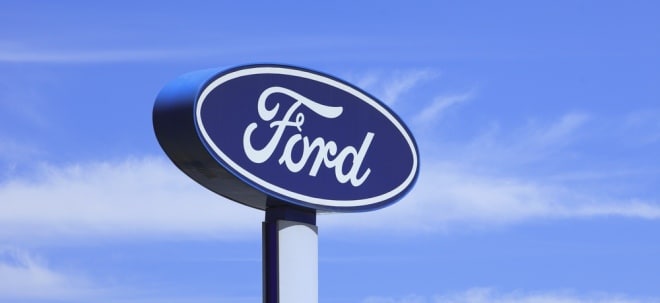Lutris Pharma Presents New Data from Its Completed Clinical Trial of LUT014 Gel Demonstrating Efficacy in Treating Acneiform Rash Associated with Use of Anti-EGFR Cancer Therapies at AACR Annual M...
LUT014 Gel Shows Statistically Significant Reductions of Acneiform Rash in the Intention-to-
Treat and Per-Protocol Patient Analyses as Compared to Placebo
Patients Randomized to LUT014 Had Lower Rates of Interruption of Anti-EGFRI Therapy Due to
Acneiform Rash
Study Presented at the Clinical Trials Plenary Session
TEL AVIV, Israel, April 28, 2025 /PRNewswire/ -- Lutris Pharma, a clinical stage biopharmaceutical company focused on improving anti-cancer therapies by reducing cutaneous dose limiting toxicity, presented data from its recently completed double-blind, placebo-controlled phase 2 randomized clinical trial of lead therapy, LUT014 gel, demonstrating statistically-significant reductions in dose-limiting acneiform rash in patients treated with epidermal growth factor receptor (EGFR) inhibitor therapy. This new clinical data, showing that Lutris' topically-applied novel B-Raf inhibitor gel is optimized for paradoxical MAPK activation, was presented yesterday in an oral presentation at the Clinical Trials Plenary Session at the American Association for Cancer Research (AACR) Annual Meeting 2025.

Presentation Details:
- Presentation Title: A double-blind placebo-controlled randomized phase 2 clinical trial to assess the efficacy of a topical BRAF inhibitor for acneiform rash toxicities from anti-EGFR therapies
- Presenting Author:Anisha B. Patel, MD, Associate Professor, Department of Dermatology, University of Texas MD Anderson Cancer Center, Houston, TX
- Abstract Number: CT018
- Session Title: New Frontiers in Precision Oncology
"Due to the widespread use of EGFR inhibitors for cancer treatment and the frequent occurrence of dermal toxicities, many patients do not receive optimal cancer therapy. This is often because the toxicity leads to dose reductions or complete discontinuation of treatment," stated Benjamin W. Corn, M.D., Chief Medical Officer of Lutris Pharma. "By reversing the inhibitory effect of anti-EGFR therapy on downstream signaling in skin cells, we firmly believe LUT014 has the potential to be a key therapeutic, offering significant benefits to patients with no other effective treatment options. In the trial, as we expected, LUT014 demonstrated statistically significant improvement in acneiform rash compared to placebo, with highly successful outcomes in both intention-to-treat and per-protocol patient analyses. LUT014 was also shown to be safe and well tolerated, with fewer adverse events reported than in the placebo group, with the majority of adverse events being mild."
"This was the first placebo-controlled randomized clinical trial demonstrating the benefit and safety of an agent for the treatment of the acneiform rash associated with anti-EGFR therapy. Therefore, having these overwhelmingly positive results for LUT014 selected for an oral presentation at the prestigious AACR Annual Meeting, is a testament to the potential of our lead asset and a significant milestone for the company," added Noa Shelach, Ph.D., Chief Operating Officer of Lutris Pharma. "In addition, our successful $30 million financing, completed in January 2025, allows us to continue advancing our clinical development program as we pursue our goal of commercializing LUT014 which will align with our mission to enhance the effectiveness of anti-cancer therapies and significantly improve the quality of life for patients."
The trial enrolled 118 colorectal cancer patients from 23 clinical sites, all of whom had developed grade 2 or non-infected grade 3 acneiform rash while receiving cetuximab or panitumumab. Participants were randomized in a 1:1:1 ratio to receive either LUT014 gel 0.03%, LUT014 gel 0.1%, or a placebo gel. The gel was applied daily for 28 days.
The primary endpoint was the proportion of patients who achieved treatment success, measured by an improvement of at least one grade in Common Terminology Criteria for Adverse Events (CTCAE) scoring or an improvement of at least 5 points in the Functional Assessment of Cancer Therapy (FACT)-EGFRI-18 HRQoL skin-specific assessment. The study employed both an intention-to-treat (ITT) analysis and a Per-Protocol (PP) analysis (i.e., patients who dropped out or did not discontinue their EGFR inhibitor for reasons unrelated to the rash, such as disease progression were excluded from the analysis). Sample size calculation was based on an expected treatment success of 20% for the placebo group and 50% for one of the treatment groups. A total of 117 patients were required for a two group ꭕ2 test with a 0.05 two-sided significance and 80% power.
Efficacy is shown in the table below. In the ITT as well as the PP, the composite endpoint demonstrated statistically significant rates of success for the high dose LUT014 group, compared to placebo.
Treatment | N | Success (ITT) | P | N | Success (PP) | P Value |
LUT-014 0.1% | 39 | 69 % | 0.0015 | 25 | 76 % | 0.002 |
LUT-014 0.03% | 40 | 47.5 % | 0.12 | 29 | 59 % | 0.07 |
Placebo | 39 | 33 % | 29 | 34.5 % |
About EGFR Inhibitor-Induced Rash
EGFR is a receptor on the surface of cells which is expressed in many normal epithelial tissues, including skin. The EGFR signaling pathway is one of the key pathways that regulate growth, survival, proliferation, and differentiation of cells. B-Raf is a protein encoded by the BRAF gene and is a downstream effector component of the EGFR signaling pathway. EGFR has been shown to be over-activated in various human cancers, including colorectal, lung, head and neck, urinary bladder, pancreatic and breast cancers, eliciting downstream phosphorylation and activation of the MAP Kinase pathway.
EGFR inhibitors can block the EGFR signal responsible for cell growth. Among the various types of pharmacological therapies for cancer, EGFR inhibitors are increasingly being used both as primary therapy as well as in patients who have progressed on prior chemotherapy treatments. Although effective as an anti-cancer therapy leading to tumor shrinkage, EGFR inhibitors have many adverse reactions associated with their use. The majority of patients treated with EGFR inhibitors will experience adverse dermatological side effects typically manifested as a papulopustular skin rash, also known as acneiform lesions, which can impact quality of life and affect adherence to therapy.
About LUT014
LUT014 is a novel B-Raf inhibitor which is applied topically to the skin. When the B-Raf protein is mutated, as is the case in some human cancers such as melanoma, blocking this pathway leads to apoptosis of the cells and tumor shrinkage. However, when the same pathway is blocked in normal, non-mutated cells, the opposite happens: the MAPK pathway is activated, and cells start growing. This phenomenon is recognized as the paradoxical effect of B-Raf Inhibitors. LUT014 harnesses the paradoxical effect of B-Raf Inhibitors in order to enhance cell proliferation and balance cell destruction, typical to radiation dermatitis.
About Lutris Pharma
Lutris Pharma is a clinical stage biopharmaceutical company focused on improving anti-cancer therapy effectiveness and quality of life for patients who are being treated with EGFR (Epidermal Growth Factor Receptor) inhibitors or with radiation, where dermal toxicity often leads to a reduction of anti-cancer therapy compliance. The company aims to provide novel topical therapies in order to mitigate these side effects. Lutris Pharma's lead asset, LUT014, a B-Raf Inhibitor, is a proprietary, first-in-class, small molecule formulated as a topical gel, has recently been studied in a phase 2 clinical trial in metastatic colorectal cancer patients with EGFR inhibitor induced acneiform lesions and previously had successfully completed a phase 1/2 study for the treatment of radiation-induced dermatitis in breast cancer patients.
For more information, please visit www.lutris-pharma.com.
Contacts:
Lutris Pharma
Noa Shelach, Ph.D.
Chief Operating Officer ir@lutris-pharma.com
Rx Communications Group
Michael Miller
+1-917-633-6086
mmiller@rxir.com
Logo - https://mma.prnewswire.com/media/1586358/Lutris_Logo.jpg

